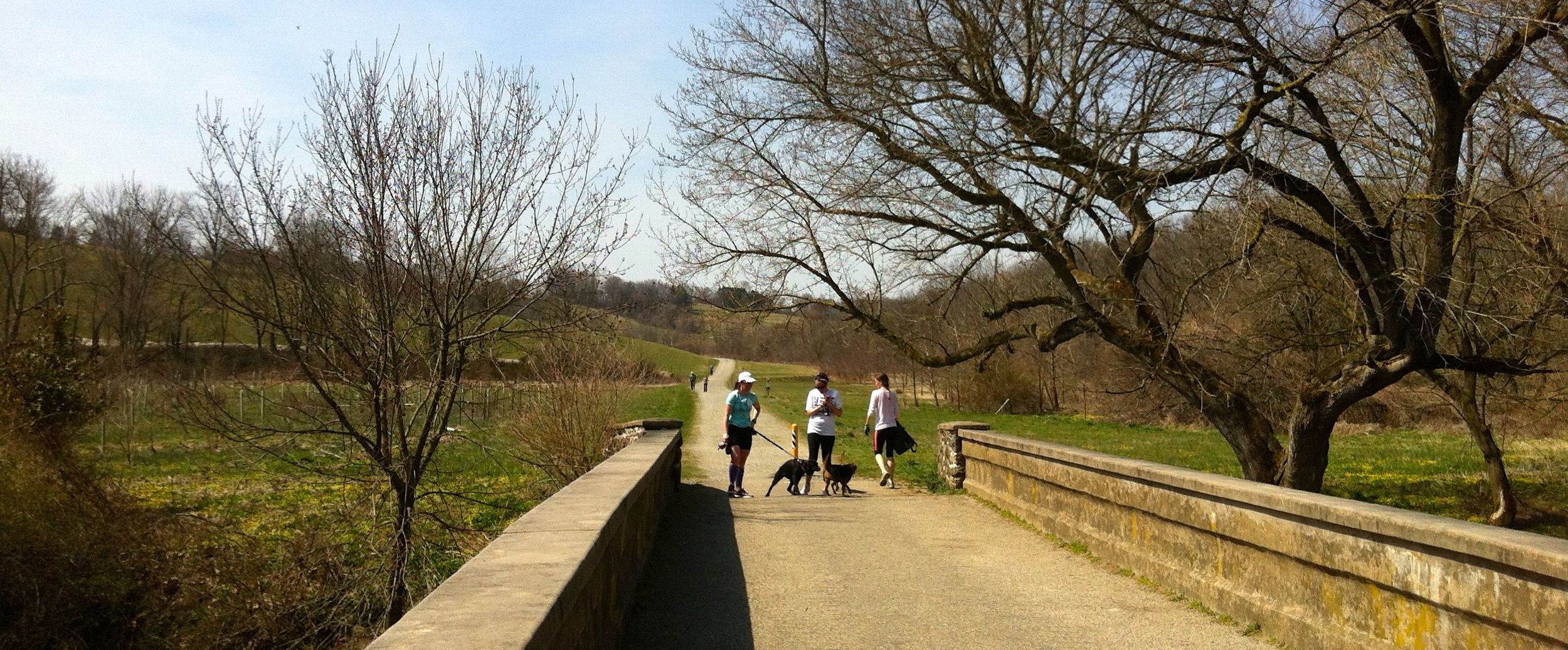The Stroud Preserve, 8 April 2013
/On warm days I am not alone! Today was the first day that I started with the temperature above 50°, as luck would have it, it was the first day of the year with more than 50 species. I had four first of year birds today, including my first warblers, Pine and Palm. The other two were Ruby-crowned Kinglet and Double-crested Cormorant. I also had a nice assortment of winter birds the most surprising of which was a Red-breasted Nuthatch at a spot that I presume the same individual has occupied all winter. I have not seen one there for the last couple of weeks and had figured it was gone for the season. I searched hard for Eastern Meadowlarks today. I spent a good amount of time scanning the tall grass in the fields below No-Hang-Glider Hill but failed to see any. I finally heard one on my last ditch effort as I was leaving. So, they are still around, or at least one is. The flora is coming along fast and furious. I predict at within a week the landscape will be in full bloom. I look forward to that. Sliver Maple, Red Maple and Box Elders were blooming, which made for a nice study in Acer flowers.
Start time: 8:50
End time: 12:15
Temp: 52-64°
Wind: 6 mph from the west
Skies: high clouds
Species Total: 55
- Double-crested Cormorant – 1, overhead FOY
- Black Vulture – approximately 15
- Turkey Vulture – approximately 20
- Canada Goose – approximately 15
- Wood Duck – 3
- Mallard – 2
- Common Merganser – 1,
- Osprey – 1
- Bald Eagle – 2, immature and adult
- Northern Harrier – 1, male
- Red-tailed Hawk – 4, 3 adults, 1 immature
- American Kestrel – 1, male
- Wilson's Snipe – 1
- Mourning Dove – 2
- Red-bellied Woodpecker – approximately 10
- Yellow-bellied Sapsucker – 1
- Downy Woodpecker – approximately 20
- Hairy Woodpecker – 1, hoping for high nest site fidelity I revisited a nest site from last yean and there it was.
- Northern Flicker – approximately 10, numbers were up today.
- Pileated Woodpecker – 2
- Eastern Phoebe – approximately 10
- Blue Jay – approximately 10
- American Crow – approximately 8
- Tree Swallow – approximately 300
- Northern Rough-winged Swallow – approximately 10
- Barn Swallow – 1, a difficult bird today. Saw it perched on a wire as I was driving off.
- Carolina Chickadee – approximately 25
- Tufted Titmouse – approximately 20
- Red-breasted Nuthatch – 1
- White-breasted Nuthatch – 5
- Brown Creeper – 1
- Carolina Wren – approximately 10
- Golden-crowned Kinglet – 1
- Ruby-crowned Kinglet – approximately 10, FOY
- Eastern Bluebird – approximately 20
- American Robin – approximately 50
- Northern Mockingbird – 3
- Brown Thrasher – 1
- European Starling – approximately 30
- Pine Warbler – 1, singing in a stand of yellow poplars. FOY and only the 2nd observation at the preserve for me.
- Palm Warbler – approximately 20, FOY
- Eastern Towhee – approximately 20, numbers increasing
- Field Sparrow – approximately 20, also increasing
- Fox Sparrow – 1
- Song Sparrow – approximately 75
- Swamp Sparrow – approximately 10, these seemed to have made a small shift in habitat preference. Up till today, I could reliably find them in the wet grassy areas along the main road from the Brandywine to the old farm pond. Today I could find none there, but instead, they were in the wooded wetlands amongst skunk cabbage.
- White-throated Sparrow – approximately 100, numbers jumped way up from the last week.
- Dark-eyed Junco – approximately 10
- Northern Cardinal – approximately 20
- Red-winged Blackbird – approximately 100
- Eastern Meadowlark – 1, heard only
- Common Grackle – 2
- Brown-headed Cowbird – approximately 25. Here is a note about cowbird numbers as the nesting season progresses. In Washington State I would regularly count dozens of cowbirds on one of my study sites. Then I decided to capture and color-band them. What I found was that I recounted the same 2 or 3 males and 4 or 5 females over and over. I estimated that fewer than a dozen females were responsible for parasitizing the scores of nest that I found that contained cowbird eggs.
- House Finch – approximately 5, heard only
- American Goldfinch – approximately 5, heard only

